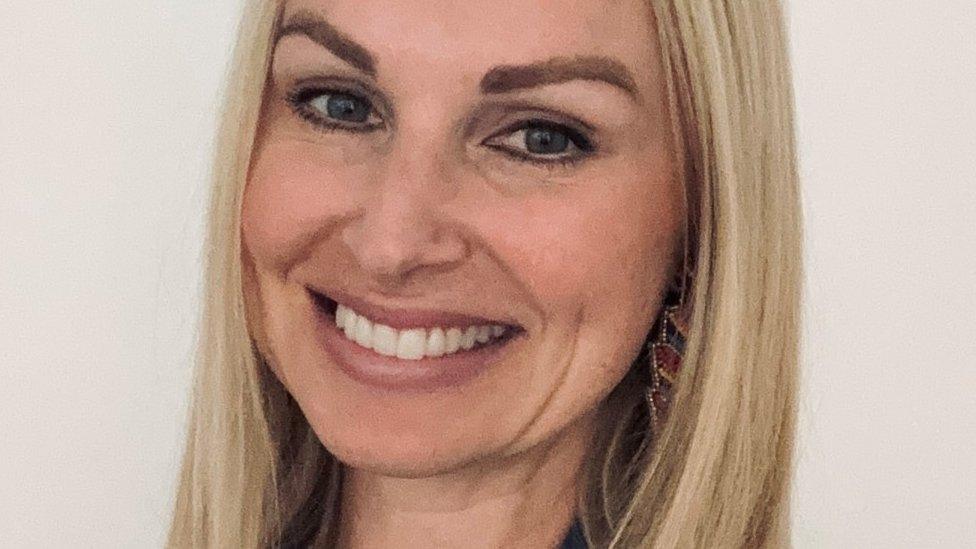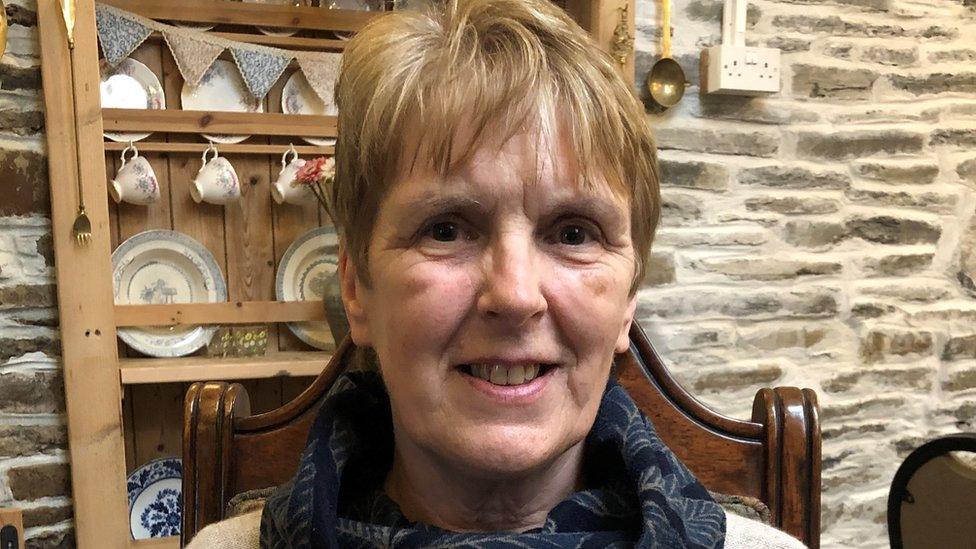Pioneering operation combines cancer surgery and Caesarean
- Published

Around one in four pregnant women in the UK has a Caesarean birth
Four women giving birth by Caesarean have had surgery to cut their risk of ovarian cancer at the same time, in what doctors say is a documented first.
The pioneering two-in-one operations, at a London hospital, all went well
Experts say it is not a decision to be taken lightly, as removing the ovaries puts a woman into early menopause.
Doing the surgery at the time of Caesarean delivery also risks greater blood loss, due to the physical changes that occur during pregnancy.
However, it can avoid an anxious wait for the standard cancer risk-reducing operation to remove the fallopian tubes and ovaries, which is usually a standalone procedure.
Prof Adam Rosenthal, who performed the procedure at University College London Hospital, said this type of simultaneous surgery has not previously been reported in a medical journal. The results are published in the latest edition of Obstetrics and Gynecology, external journal.

Claire Rodrigues Lee has a gene that puts her at higher risk of developing certain cancers
Claire Rodrigues Lee, 45, from London, was one of the four women to have the pioneering dual procedure, which took surgeons about an hour to complete.
She was awake for the entire operation, but had a spinal anaesthetic, meaning she felt no pain.
Her operation in 2019, when she had just turned 41, was at the same time as the birth of her son - her second child.
She told BBC News: "They handed him to me, so I had a cuddle with him - I think it was before they started on the next procedure. Then I passed him to my husband and they started the second part."
Explaining what the procedure entails, Prof Rosenthal said: "We lift the top of the uterus out of the abdomen to bring the tubes and ovaries out of the abdominal incision so they are easily accessible.
"The only real issue is that the blood vessels get much bigger in pregnancy so extra care has to be taken to avoid damaging them. We ligate or cauterise them very carefully."
No regrets
Claire says she knew she was at higher risk of ovarian cancer due to a gene she had inherited, and wanted to have the risk-reducing surgery as soon as possible after giving birth for the second time, knowing she had had all the children she wanted.
"I was looking up online how quickly I could have the surgery after giving birth, and I came across the combined surgery as the first case had just been done. So I wanted to know if it would be possible for me."
She says she has no regrets about the surgery. "It saved me having to go into surgery twice...and the worry - this cloud of fear that I would get ovarian cancer."
She had her daughter by Caesarean too, and says the recovery and experience with her son was "no different really".
"It's probably the best decision I've made, simply because I didn't have to take out more time away from my children to go in for another procedure.
"Why would I put myself through two surgeries when I could have everything done all at once and then I heal?"
A woman who inherits a BRCA1 or BRCA2 gene variant has an increased risk of developing breast and ovarian cancer during her lifetime.
It is not inevitable that she will get cancer, but her odds are higher than average.
For example:
Of 100 women in the general population, two will develop ovarian cancer before the age of 80
Of 100 women with a BRCA2 variant, 11 to 25 will get ovarian cancer by age 80
With a BRCA1 variant, 36 to 53 in every 100 will get ovarian cancer by 80
Source: Macmillan Cancer Support
There is a one-in-two, or 50-50, chance she will pass the variant to each of her children.
Claire says she discovered that she had the BRCA2 variant when she was 36.
"I had just got married. I started to look at what my options were.
"It was quite scary. You sail through life thinking everything is fine... then all of a sudden this thing hits you in the face. You've got this gene and it means you are at a higher risk for cancer."
Claire has also had a double mastectomy to reduce her risk of getting breast cancer.
She says when her children grow up they will be able to chose whether or not to get tested for the gene. "With all the luck in the world hopefully neither of them have it, but if they do, then they have choices."
Athena Lamnisos, from The Eve Appeal charity which works to raise awareness about women's cancers, said: "These case studies tell a powerful story about what preventative surgery can deliver for women at high risk of ovarian cancer."

Sign up for our morning newsletter and get BBC News in your inbox.

Related topics
- Published16 March 2023

- Published18 January 2018
